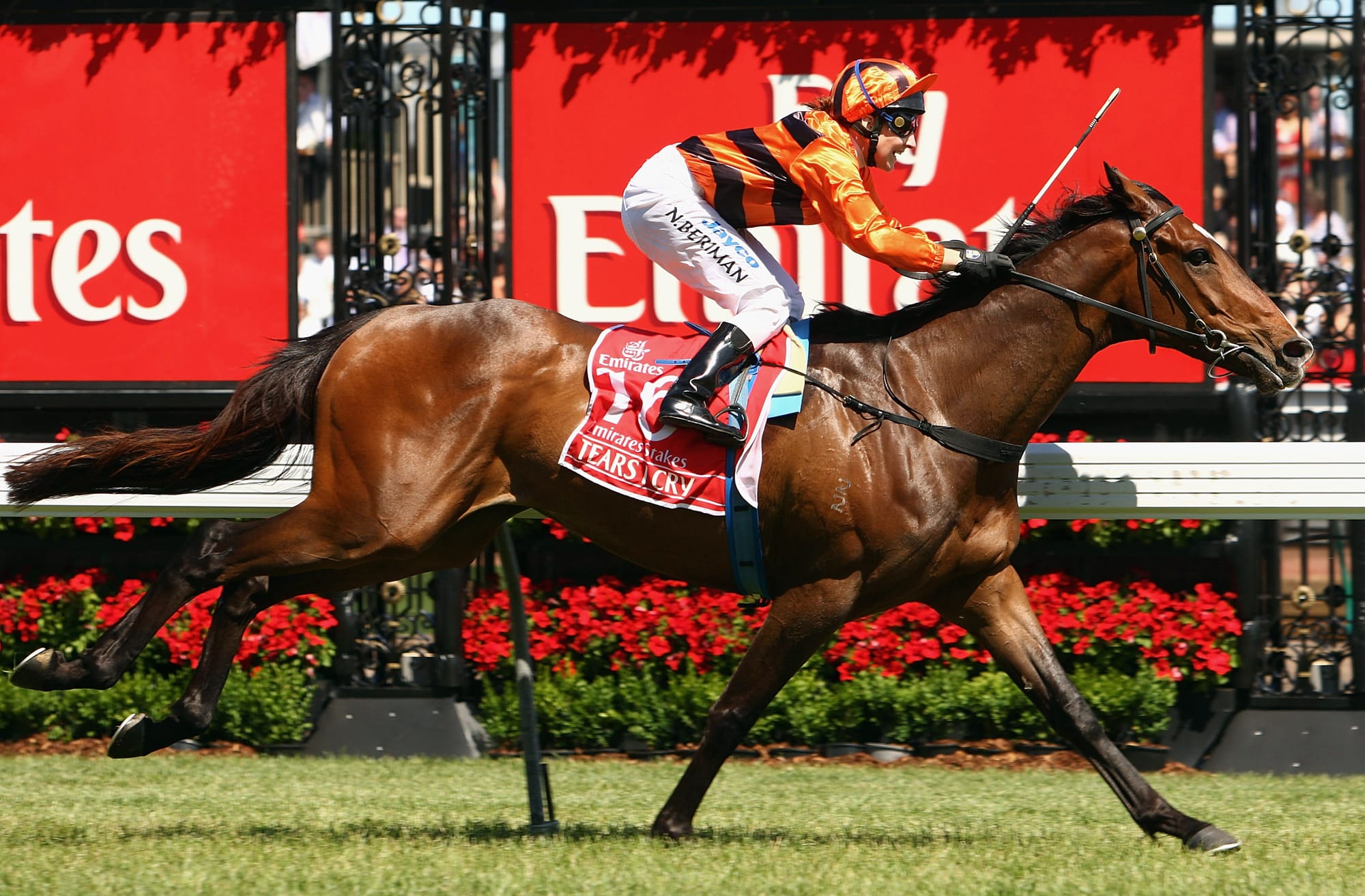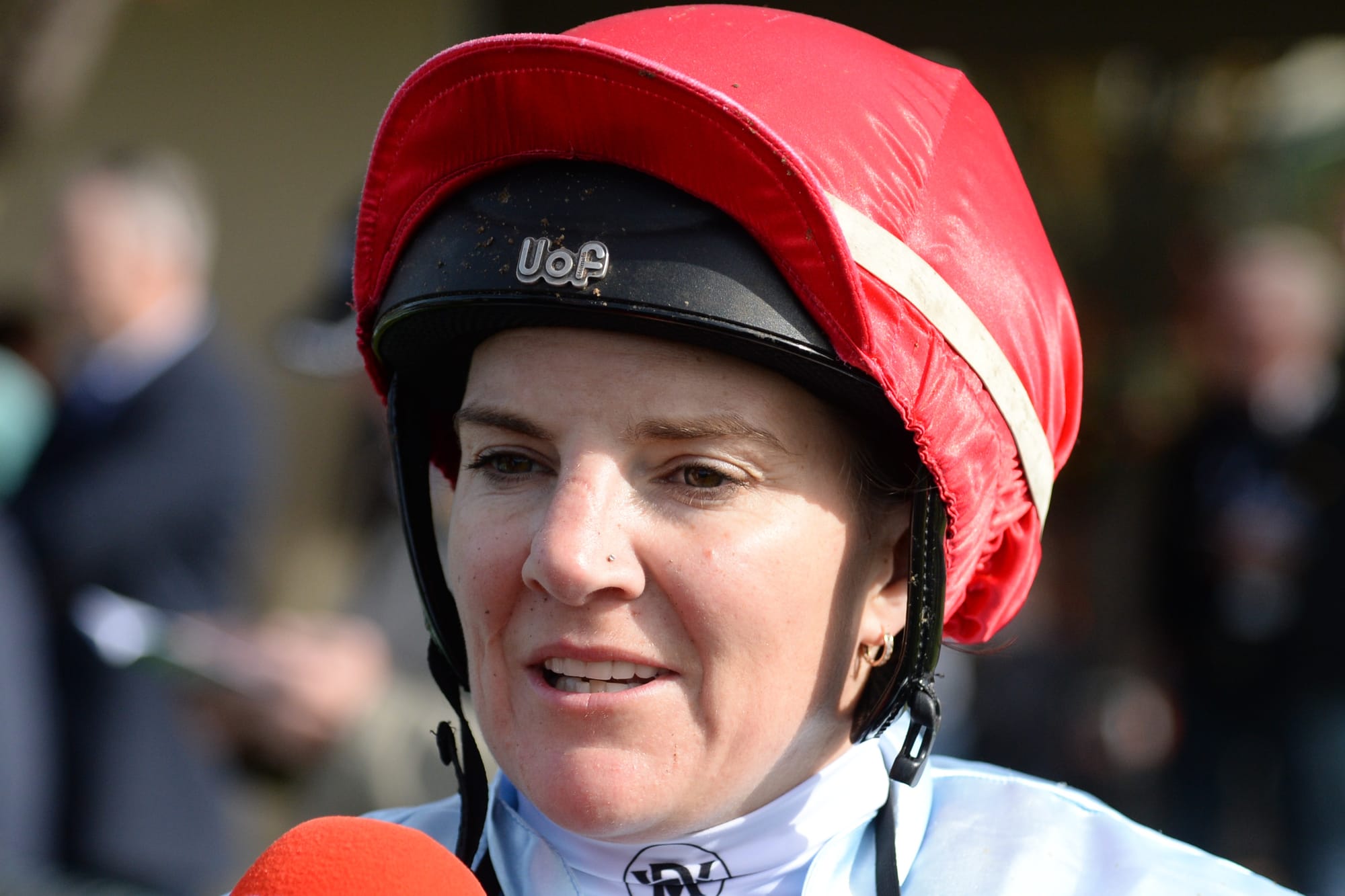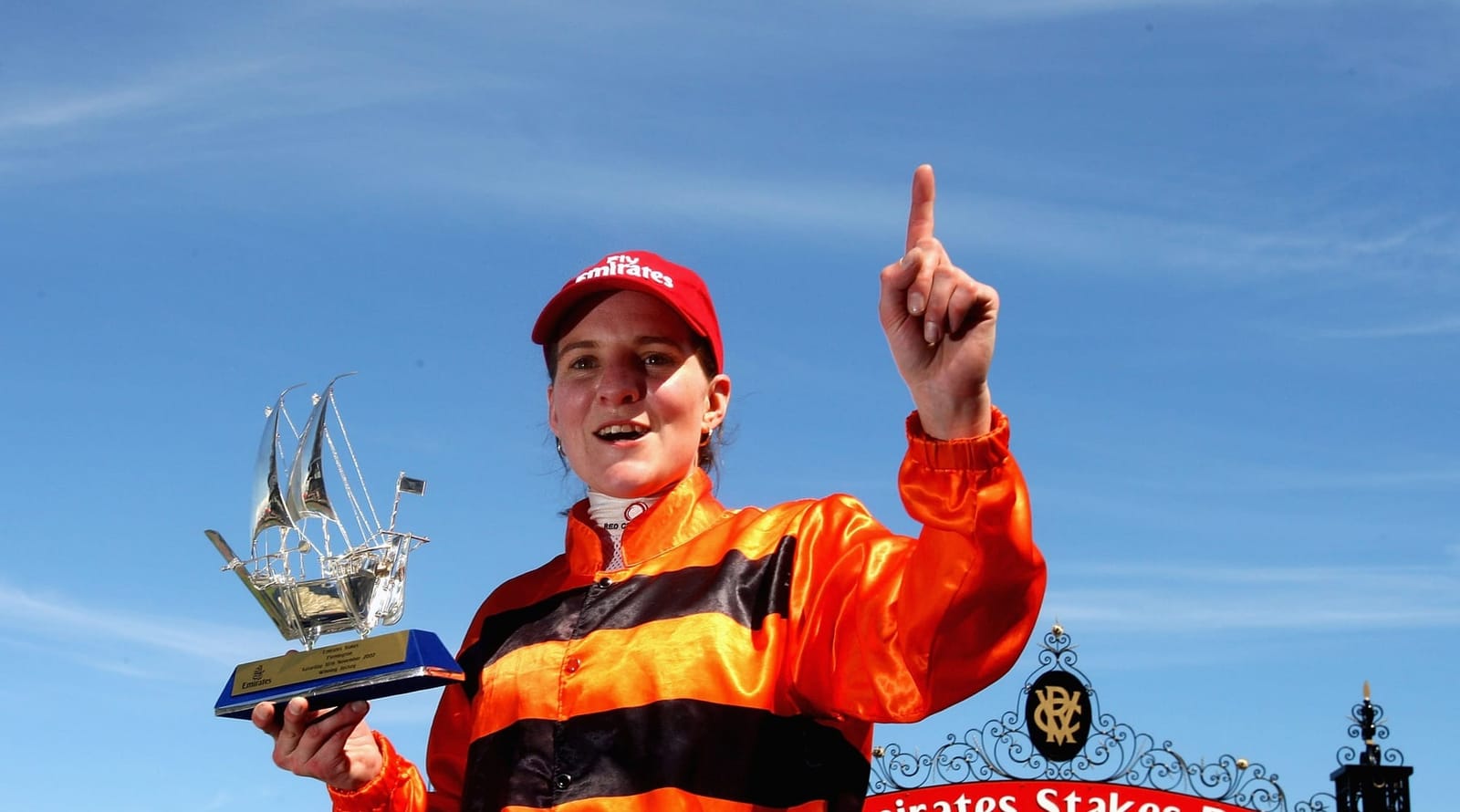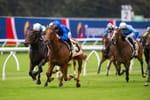Nikita Beriman has ridden racing’s uncertainties more than most jockeys. But having begun her latest comeback to the saddle, these days she is motivated by an entirely different force.
A lot of water has gone under the bridge since she was a Group 1-winning jockey at 22. Now 37, she has ridden more than 700 winners, amid injuries and personal battles that she now chalks up the experience.
“I learned the hard way with a few things and I made some bad decisions, but I’m happy with where I am now and thankful with what I’ve got today,” Beriman tells The Straight.
Having emerged from a three-year retirement in 2022 to resume riding, she has had the last seven months out of race riding before making her latest comeback last Friday at Eagle Farm.
She’d been sidelined since July with a complicated shoulder injury, the result of a trackwork accident.
“I actually broke my shoulder and it turned out to be a very drawn-out process,” she said,
“We managed to avoid surgery but for the first three months I wasn’t allowed anywhere near a horse, which is hard when you live on a farm.
“But I was probably a little bit thankful that I’d had time out of the saddle before. I knew there was a life outside of racing, but it was hard because I’d just been getting back into the swing of things when I broke that shoulder.”
Beriman is based on Queensland’s Sunshine Coast, her childhood home. She hasn’t always lived there. When she was 14, she and her family relocated to Victoria where she pursued her ambitions to be a professional race rider.
Her first runner was in May 2002 at Echuca and, since then, over a journey of nearly 7500 race rides, she’s ridden the same volatile waves as most in her profession when it comes to injuries.
In 2006 she was sidelined for several months with a broken heel, while an aggravated hip injury was one of the reasons she pulled the pin in 2019. She was just shy of 700 victories, which included the Group 1 Emirates Stakes winner Tears I Cry, a famous moment in 2007 at odds of 100/1.

When Beriman announced her return in 2022, it was from Queensland and it wasn’t to reach milestones or make headlines. It was to earn a living, simple as that, but it’s been stop-start.
“I wouldn’t say that I’ve been unlucky in the saddle,” she says. “I’ve had a pretty good run for a long time. I’ve probably spent as much of it on the sidelines, but if I had to say, I think I’ve had a pretty lucky career.
“I didn’t come back to be Queensland’s leading rider or to win premierships, or with any of those thought processes in mind. I came back because I loved it and I loved the horses, and it was an easy decision to make.”
Beriman is one of the few female jockeys in this country plying her trade with a child at foot. Her daughter Ella is three years old and the physical demands of professional riding, let alone the hours and required travel, aren’t always a perfect match with sole parenthood,
However, that has not been Beriman’s experience.
She gets up before dawn, heads to trackwork each morning and is home before her daughter wakes up. Two or three times a week, she’ll ride at a race meeting.
In her opinion, there aren’t many careers for mothers of young children that allow them to earn such good money and still be home with their children, day done, by 9am.
“When I retired, I was a big advocate against mothers returning to the saddle because the risk is so high,” she says. “I didn’t have anything to do with horses by the time Ella was born, and then Michelle Payne offered me an opportunity to run a stable up here on the Sunshine Coast.”
“I learned the hard way with a few things and I made some bad decisions, but I’m happy with where I am now and thankful with what I’ve got today” - Nikita Beriman
Payne’s offer was a slide back into racing that Beriman wasn’t expecting, but she took it and enjoyed it, only giving it away when the hours began to squeeze out her time with her daughter.
“It’s well documented that Ella is my number one priority, so I started riding trackwork for Natalie McCall up here and I got that love for the game back, which I’d lost for so long. I just thought there was money to be made here, and then I got all day to be with my daughter.
“What other job could I do that could give me a good income but still provide time for me to spend all day with Ella, especially in those early years when she’s growing up?”
For Beriman, the money was one thing. She says she wouldn’t be able to return to riding if she didn’t love it because if she doesn’t love something, she can’t give it her full attention. This is something she learned during her ‘retirement’ when she tried to do a business management course while she was pregnant.
“It was going through my eyes and out my ears,” she says. “I just couldn’t focus on it because I wasn’t interested in it. Racing is a good fit for me and it’s a good fit for Ella, but it’s not a forever thing and I’m very well aware of that.”
It took Beriman by surprise that racing slotted back into her new life as well as it did. She’s getting paid to do something she loves, and she’s good at it.
During her early career, she was widely respected as one of the most promising apprentices in the jockeys’ room. Her first win came for her dad, Denis, while in her second full season she rode 54 winners. In 2007, when nudging home Tears I Cry in the Emirates Stakes, it delivered a young Ciaron Maher his first Group 1 victory.
But what about the toll on her body, motherhood, injury and a one-time retirement?
“You know, I haven’t always been the lightest person in the world, but since having Ella, and it’s probably one of the reasons I came back, I’ve been walking around at 50 kgs,” Beriman says. “I eat and drink what I like and the heaviest I’ve got is 53 kgs. It’s been insane.”
Mentally and physically, Beriman seems like she is in a good place, and both are critical to longevity in any jockeys’ room in Australia. However, it wasn’t always like this.
During her years in Victoria, she endured nasty headlines about the breakdown of her marriage and a public spat with her sister, Jackie. Everyone was interested in her dirty laundry, and those were tough years.

“At apprentice school we were taught that any publicity is good publicity, which I don’t agree with,” she says. “I’d rather be spoken about positively than negatively, and it’s why I don’t post my rides or even my winning rides. I have Facebook and Instagram, but I won’t use Twitter because I don’t want to read negativity.
“I was fortunate back then that social media probably wasn’t as huge as it is today, and I have such strong views on this because it is so unfair that people sit behind a keyboard and write awful things about jockeys, horses, owners, trainers, whatever.
“I see it, I occasionally get it and I wipe it because I don’t need that in my life.”
Beriman empathises with Jamie Kah, who has consistently had to deflect negative headlines, despite her success.
“Sometimes I feel like they put people on pedestals just to pull them down,” she says.
Beriman says she feels a different person from the 22-year-old who celebrated the first-ever Group 1 win at Flemington by a female jockey. Motherhood, too, has shifted the goalposts, and the intense bubble that is competitive racing doesn’t seem so consuming to her these days.
Her daughter, her farm on the Sunshine Coast with its handful of horses, and her years of experience mean that these days, most headlines about her are positive.
“I grew up,” she says. “Prior to that, I literally had the world at my feet and I blew it away because I made poor decisions. But that’s on me and everything is a lesson in time.”





